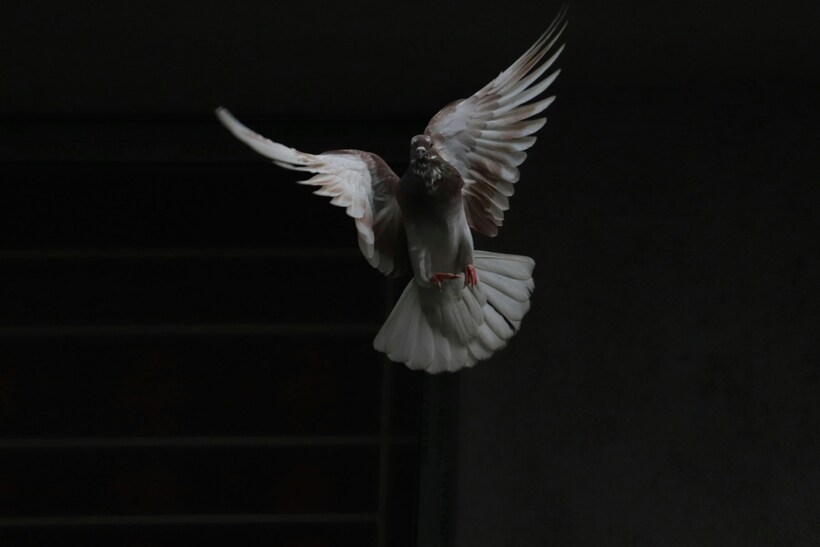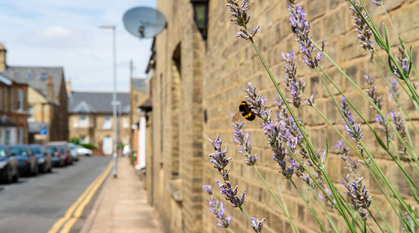Straight, not narrow: John Lampen addresses some misconceptions over the Peace Testimony
"It's not part of our tradition to say we must always be silent or neutral in the face of evil."

Some recent writing in the Friend has implied that our Peace Testimony contains a duty not to take sides when faced with the world's conflicts. This is a misunderstanding that could mislead Friends, and give a wrong impression about our peace witness.
The Testimony covers much more than peacemaking between contestants. It embraces our personal behaviour, how we manage our own conflicts, and how we react to evil at all levels. Our Friend Grigor McClelland, in a key article reprinted in Endeavours to mend (Quaker Books, 2006), conceptualised two patterns of response, which he called 'prophesying' and 'reconciling'. This distinction was taken up by Wolf Mendl in his 1974 Swarthmore Lecture.
[QUOTE-START]
Both prophets and reconcilers are important aspects of Quaker witness
[QUOTE-END]
Friends who are called to be prophets can't be neutral; they identify something which is wrong and speak out clearly against it. Those who reconcile are healers; they look for common ground on which contestants can meet, find agreement, and hopefully put the past behind them. Both roles are necessary; both are important aspects of Quaker witness. Grigor suggested that each of us has both these voices inside us, sometimes in painful tension. But generally, in the public sphere, we cannot simultaneously take both paths; a choice must be made.
Both approaches are found in our history. George Fox was a prophet when he wrote his A warning to the merchants of London; he sought reconciliation when he dined with his former jailers in Scarborough. In A plea for the poor John Woolman was a prophet; when meeting the First Nations peoples in a time of war, a reconciler. Our prophets look for that of God in the oppressors, but they hope to engage with it by telling the truth. One modern parallel might be Martin Luther King's Letter from Birmingham Jail. It's not part of our tradition to say we must always be silent or neutral in the face of evil.
That view may arise from the mediation work of Friends such as Sydney Bailey and Adam Curle at a high political level, and from initiatives like Quaker House, Belfast. In those special circumstances, mediators needed to be unbiased to be acceptable to all sides. When Martin Luther King's widow, Coretta, offered to mediate in apartheid South Africa, she was not accepted because she was identified with the prophetic civil rights movement in the USA.
Those of us who have engaged with warring parties do not preach to them, but have found we need not conceal our sense of right and wrong. HW van der Merwe, one of the most successful Quaker mediators in the last century, wrote in Pursuing peace and justice in South Africa: "Can concern for the oppressed be expressed without sacrificing this impartiality and without estranging the oppressor? I believe so, provided that concern for suffering is distinguished from moral support for any one party in the conflict." Friends' mediation in the Nigerian civil war was almost wrecked when another Quaker body launched an advertising campaign criticising the Nigerian government. The Quaker mediators could explain their own moral views to contestants, as Adam Curle describes in his 1981 Swarthmore Lecture; but the publicity looked like a hostile act, which cast doubt on their impartiality.
[QUOTE-START]
Those of us who have engaged with warring parties do not preach to them, but have found we need not conceal our sense of right and wrong.
[QUOTE-END]
I can endorse this from my own experience in Northern Ireland. When I moved there, a senior member of Sinn Féin asked me what right I had, an outsider and a Brit, to get involved. I said that I was concerned for the people on every side who were suffering in the conflict, and I hoped to find ways to improve things for them. He relaxed and said, "If that's so, your help will be very welcome." Later I sometimes went to him or another leading figure in the police, army or illegal armed organisations to criticise something their people had done; occasionally I spoke in anger. I was always heard with respect, and there is reason to think my words sometimes contributed to a change of policy. If I had made the same criticism in public, no one would have thought I was disobeying Quaker principles – but it would have ended my acceptability as an intermediary.
Of course mediators and intermediaries do not repeat everything they think – or hear. Some of what they are told is confidential, and some things which they are asked to pass on are untruthful. They must be trusted to keep silent when necessary, and to be accurate and tactful when they speak. The least hint of insincerity destroys that trust. I once heard an IRA leader telling someone about his mistrust of visitors from Britain and the USA who had asked to meet him. "They either flatter me as a hero or condemn me as a monster, and I'm neither," he said; but he then added, "I don't include John in that. I always expect him to tell me the truth as he sees it."
Reconcilers' principles reflect Quaker values: to listen with a quality akin to worship to the thoughts, feelings and beliefs of those you speak with; to discern unconsidered possibilities; to be able to reframe what you hear in a way which sheds a new light on it; and to reach out to people's essential goodness, whatever their actions. My experience convinces me that this can bring positive progress, though success cannot be guaranteed.
[QUOTE-START]
There is a tension between openly naming the wrong and working to reconcile those who are caught up in it.
[QUOTE-END]
There are guidelines for Quaker prophets too: speak out, but don't demonise oppressors; acknowledge whatever positive values you find in them; don't attribute motives without clear evidence; try to understand the pressures which make them behave as they do; check your facts and be as specific as possible. Generalisations are usually inaccurate, and seldom persuade anyone who doesn't already agree with you – but the prophet's aim is to convince the wrongdoer. Van der Merwe says that a key factor in the collapse of apartheid in South Africa was when those who were benefitting from it lost their conviction that it was justified.
There is a tension between openly naming the wrong and working to reconcile those who are caught up in it. Circumstances and opportunities differ from case to case and change over time. Often both paths are needed, and both are profoundly Quakerly. If you decide to take action, your temperament, skills and experience may determine which you choose.
But sometimes one way is closed. If you say that I cannot be effective in peacemaking if I take sides in the conflict in Gaza or Ukraine, I will suggest that you have too narrow an understanding of peacemaking. Clearly I personally, and our Society, will not be asked to mediate. Britain Yearly Meeting would not be acceptable to the Israeli government, given our support for the Boycott, Divestment, Sanctions movement in areas of Israeli settlements, and the Ecumenical Accompaniment Programme – and even less to the Russian leadership. So unless we are content to do nothing, we need to contribute to peace in another way. This might be by 'publishing the truth' and exposing what is hidden or denied. It could also mean giving material help to those suffering, or supporting local peacemakers.
So please don't make your understanding of peace work too narrow, Friends; and don't attack those who have chosen a different path from you.
This article is copyright of the Friend and is republished here with kind permission of the author and the editor of the Friend. You can subscribe to the Friend, the independent Quaker magazine, at thefriend.org.
Find out more about Quaker responses to the current situation in Palestine and Israel


